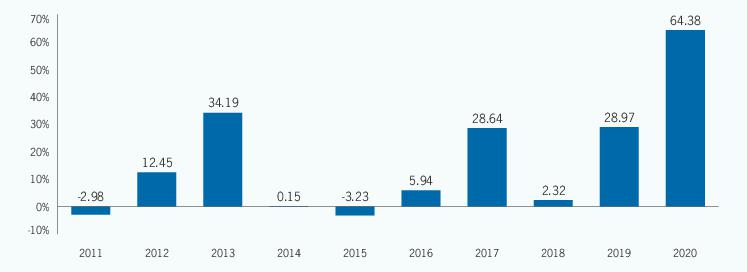performance, return
on equity statistics, geographic analysis, number of holdings, month-end top ten contributors to and detractors from performance, portfolio turnover, and other similar
information. Shareholders should visit www.alger.com or may also contact the Fund at (800) 992-3863 to obtain such information.
The Fund provides its portfolio holdings on a daily basis, with no lag, to each of Abel Noser, Bloomberg, Factset, Security Class Action Services, LLC, and William O’Neil + Co. Inc. The Fund has
ongoing arrangements to provide its portfolio holdings to Callan Associates, Epiq eDiscovery Solutions, Inc., Equest, eVestment Alliance, LLC, Fascet LLC, ICE Data Services, InsiderScore, Mercer Investment
Consulting, Morningstar, Oppenheimer, PSN, S&P Global Inc., RBC Capital Markets, Refinitiv US LLC, Renaissance Macro, Seismic, Synergy Capital Management, Vantagepoint Investment Management, Inc., and
Wilshire. Neither the Fund nor any other person is directly compensated for such disclosure, although certain persons receiving such disclosure may be investors in the
Fund and may therefore be subject to fees applicable to all shareholders. Alger Management also manages accounts for individuals and institutions. Holders of these accounts may own many of the same securities as the Fund, and therefore may be
generally aware of the portfolio holdings of the Fund.
Net Asset Value
The price of one share of a class is based on its “net asset value.” The net asset value is computed by adding the value of the Fund’s investments plus cash and other assets allocable to the class, deducting applicable liabilities and then dividing the result by the number of shares of the class outstanding. The net asset value of a share of a given class may differ from that of one or more other classes of the Fund. Net
asset value is calculated as of the close of business (normally 4:00 p.m. Eastern time) on each day the New York Stock Exchange (“NYSE”) is open.
Purchases of shares will be based upon the next net asset value calculated for each class after your order is received and accepted by the Transfer Agent or other designated intermediary. If your purchase is
made by check, wire or exchange and is received by the close of business of the NYSE (normally 4:00 p.m. Eastern time), your account will be credited on the day of receipt. If your purchase is received after such time, it will be credited the next business day.
The NYSE is generally open on each Monday through Friday, except New Year’s Day, Martin Luther King, Jr. Day (the third Monday in January), Presidents’ Day (the third Monday in February), Good
Friday, Memorial Day (the last Monday in May), Independence Day, Labor Day (the first Monday in September), Thanksgiving Day (the fourth Thursday in November) and Christmas Day.
The assets of the Fund are generally valued on the basis of market quotations. Securities for which such information is readily available are valued at the last reported sales price or, in the absence of
reported sales, at a price within the bid and asked price or the official closing price as reported by an independent pricing service on the primary market or exchange on which they are traded. In the absence
of a recent bid or asked price, the equivalent as obtained from one or more of the major market makers for the securities to be valued may be used. Other investments and other assets, including restricted
securities and securities for which market quotations are not readily available, are valued at fair value under procedures approved by the Board. Short-term securities with maturities of 60 days or less are
valued at amortized cost, as described below, which constitutes fair value as determined by the Board.
Securities in which the Fund invests may be traded in markets that close
before the close of the NYSE. Developments that occur between the close of these markets (generally foreign markets) and the close of the NYSE (normally 4:00 p.m. Eastern time) may result in adjustments to the closing prices to reflect
what the investment manager, pursuant to policies established by the Board, believes to be fair values of these securities as of the close of the NYSE. The Fund may also fair value securities in other situations, for example, when a particular foreign market is closed but the Fund is open.
The valuation of money market instruments with maturities of 60 days or less held by the Fund is based on their amortized cost which does not take into account unrealized capital gains or losses.
Amortized cost valuation involves initially valuing an instrument at its cost and thereafter assuming a constant amortization to maturity of any discount or premium, regardless of the impact of fluctuating
interest rates on the market value of the instrument. Although this method provides certainty in valuation, it may result in periods during which value, as determined by amortized cost, is higher or lower than the
price the Fund would receive if it sold the instrument.



